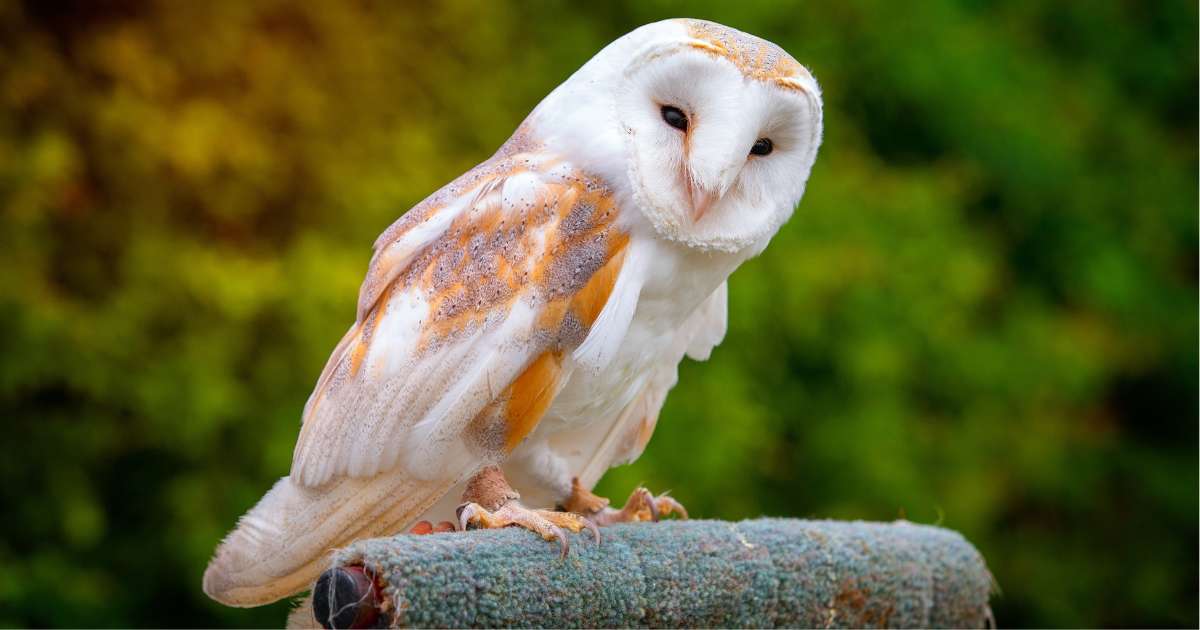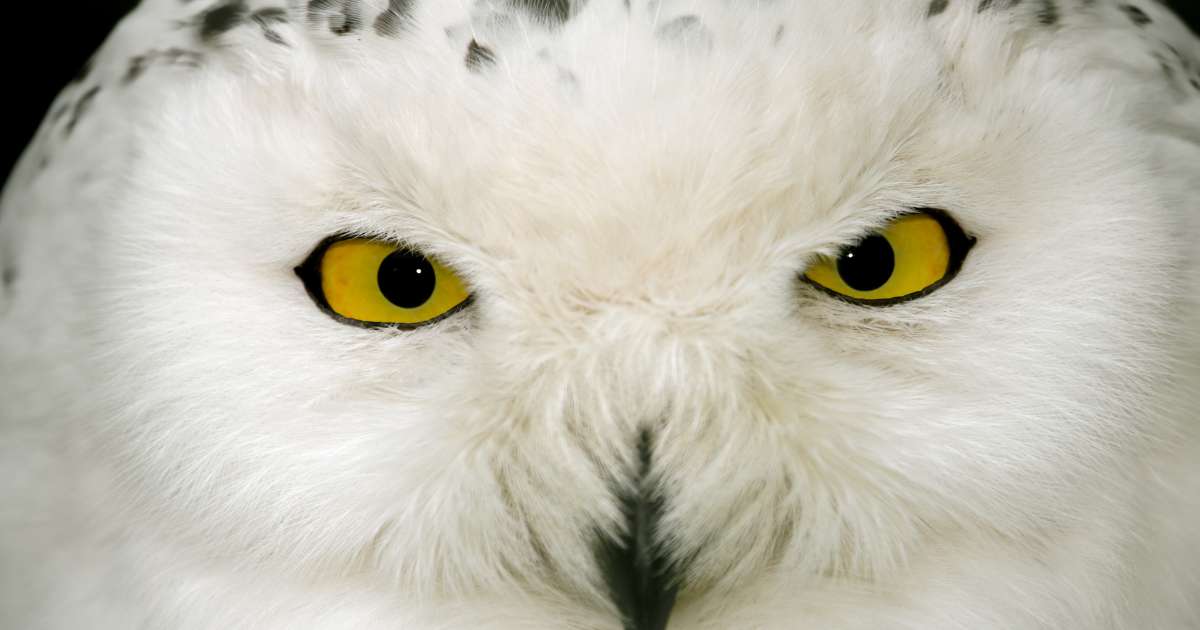Owl in the Bible often mean lonely places and God’s judgment. They show up in many Bible stories. Sometimes owls stand for wisdom too. Their meaning can change depending on which part of the Bible you’re reading.
Ever seen an owl and felt a bit spooked? In the Bible, owls are pretty interesting too. They’re not just night birds, they might have special messages. Today, we’re diving into the fascinating world of owl symbolism in the Bible. The Bible talks about owls in different ways. Sometimes they’re scary prophecies. Other times, they’re in poems or rules. Owls can mean different things in the Old and New Testaments.
Learning about owls helps us understand the Bible better. It shows us how God teaches people about right and wrong.So, let’s ruffle some feathers and explore what these wise old birds really mean in biblical context.
What Does an Owl Symbolize in the Bible, Particularly in the Old Testament?
In the Old Testament, owls often swoop in as harbingers of desolation and judgment. These creatures of the night appear in passages that speak of God’s wrath and the consequences of turning away from divine guidance. For instance, Isaiah 34:11 paints a vivid picture of owl-inhabited ruins, symbolizing the aftermath of divine punishment.
But it’s not all doom and gloom! The owl’s association with darkness and solitude also connects to themes of introspection and spiritual transformation. In the silence of the night, when owls are most active, we’re reminded of the importance of quiet reflection and seeking wisdom in solitude. This dual nature of owl symbolism adds depth to our understanding of Old Testament teachings.
What Does an Owl Symbolize in the Bible, Particularly in the New Testament?
While owls don’t make as many appearances in the New Testament, their symbolic influence still lingers in the shadows. The teachings of Jesus often contrast light and darkness, with darkness representing ignorance or separation from God. In this context, the owl’s nocturnal nature can be seen as a metaphor for those who haven’t yet embraced the light of Christ’s teachings.
It’s crucial to remember that the New Testament also emphasizes transformation and redemption. Just as an owl’s keen vision pierces through darkness, followers of Christ are called to seek spiritual insight and discernment. This shift in symbolism reflects the overall message of hope and salvation central to New Testament teachings.
Do owls have any significance in the Christian tradition outside of the Bible?

Beyond the pages of scripture, owls have nested comfortably in Christian art and literature. Early Christian symbolism often portrayed owls as emblems of wisdom and spiritual discernment. In medieval bestiaries, these birds were sometimes associated with Christ’s ability to see through the darkness of sin.
It’s important to note that interpretations varied widely. Some traditions viewed owls more negatively, associating them with heretics or those who shun the light of faith. This diversity of meanings reminds us of the rich tapestry of symbolism woven throughout Christian history.
What Is The Prophetic Meaning Of Owls In The Bible?
When it comes to prophecy, owls in the Bible often herald significant changes or impending judgment. Their haunting calls and ability to see in the dark align with the role of prophets who perceive future events hidden from others. In this light, owl symbolism serves as a wake-up call, urging believers to remain vigilant and attuned to God’s messages.
Consider this: just as an owl’s piercing gaze can spot the smallest movement in the night, biblical prophecy often reveals subtle signs of things to come. This connection between owls and prophetic insight encourages us to sharpen our spiritual senses and remain open to divine guidance in our lives.
What Are The Spiritual Meanings Of Owls In The Bible?
Delving deeper into the spiritual meanings of owls in the Bible, we uncover a wealth of insights. These nocturnal birds often represent hidden knowledge and the ability to navigate through spiritual darkness. Their silent flight and acute hearing symbolize the importance of listening for God’s still, small voice amidst the noise of the world.
Moreover, the owl’s solitary nature reminds us of the value of spiritual retreat and self-reflection. In a world that often prioritizes constant activity, the owl’s symbolism encourages us to find moments of quiet contemplation. This balance between action and reflection is a key aspect of spiritual growth emphasized throughout biblical teachings.
What Does It Mean When An Owl Visits Your Home?
While the Bible doesn’t specifically address owl visits to homes, we can draw some spiritual parallels. In many cultures, an owl’s presence is seen as a message or omen. From a biblical perspective, we might interpret such an encounter as a call to heightened spiritual awareness or a reminder of God’s omnipresence, even in the darkest times.
It’s essential to approach such experiences with discernment. Rather than seeing an owl visit as a direct divine sign, we can use it as an opportunity for spiritual reflection. What areas of our lives might need more of God’s wisdom? How can we be more attuned to His guidance in our daily walk? These are the kinds of questions an unexpected owl encounter might prompt us to consider.
What Does It Mean When An Owl Crosses Your Path?
An owl crossing your path can be a startling experience, and while the Bible doesn’t offer a specific interpretation for this event, we can glean some spiritual insights. In biblical terms, such an encounter might be seen as a moment of divine interruption – a pause in our routine that invites us to consider the deeper aspects of our faith journey.
Think of it as a gentle nudge from the universe (or perhaps the divine) to pay attention. Are we on the right path spiritually? Are we overlooking important truths or messages in our lives? The sudden appearance of an owl could serve as a reminder to stay alert and open to God’s guidance, even in unexpected forms.
What Does A White Owl Mean?

White animals often hold special significance in biblical symbolism, representing purity, holiness, or divine presence. While white owls aren’t explicitly mentioned in scripture, we can extrapolate some meaningful interpretations. A white owl might symbolize spiritual enlightenment or the presence of divine wisdom in unexpected places.
In the context of biblical teachings, encountering a white owl could be seen as an invitation to seek purity of heart and clarity of spiritual vision. It’s a reminder that God’s wisdom and guidance can appear in surprising forms, challenging us to look beyond our preconceptions and remain open to divine revelations in all aspects of our lives.
What Does It Mean To See An Owl In Your Dreams?
Dreams play a significant role in biblical narratives, often serving as vehicles for divine communication. While the Bible doesn’t specifically interpret owl dreams, we can apply biblical principles of dream interpretation to these nocturnal visions. Seeing an owl in a dream might represent a call to seek wisdom, a warning to be vigilant, or an invitation to explore hidden spiritual truths.
Remember Joseph’s ability to interpret dreams in Genesis? Like him, we’re encouraged to seek God’s guidance in understanding our dreams. An owl dream might be prompting us to pay attention to areas of our lives that require more spiritual insight or discernment. It’s an opportunity to reflect on our spiritual journey and seek God’s wisdom in navigating life’s challenges.
You may also like:
Does The Bible Say Owls Are Evil?
Contrary to what some might think, the Bible does not say that owls are evil. In Leviticus, owls are listed as “unclean” animals, but this was more about food laws and religious practices, not about owls being bad. It’s important to understand these verses in their historical context rather than taking them literally today.
Are Owls A Bad Omen In The Bible?
Owls in the Bible are sometimes linked to desolation or judgment, but it’s too simple to call them “bad omens.” The Bible advises against superstitions and encourages seeking wisdom and guidance from God.
Are There Any Specific Bible Stories Or Parables Featuring Owls?
Owls aren’t the main focus of any Bible stories or parables, but they do appear in important visions and poems. For example, in Psalm 102:6, the writer feels lonely and compares himself to “an owl of the waste places.” This shows his deep sadness and isolation.
Do Owls Have Any Significance In The Christian Tradition Outside Of The Bible?
Outside of the Bible, owls have played a role in Christian traditions and symbols. In medieval Christian art, they sometimes symbolized Christ’s ability to see through the darkness of sin. Early church leaders, like St. Augustine, saw the owl’s night-time activity as a symbol for those seeking wisdom in a dark and confusing world.
Has The Biblical Interpretation Of Owls Changed Over Time?
The way people understand owl symbolism in the Bible has changed over time due to new ideas and cultural shifts. In the past, owls were mostly seen as symbols of desolation and judgment. As we’ve learned more about animals and their environments, many modern scholars now take a more balanced view.
What Are Some Common Misconceptions About The Symbolism Of Owls In The Bible?
One common mistake is thinking that owls are always symbols of evil or bad luck in the Bible. While they are sometimes linked to desolation, it’s too simple to say they’re only negative. Another misunderstanding is believing the Bible gives a single, clear meaning for owl symbolism. The meaning can change depending on the context of the passage.
Are There Any Biblical Scholars Who Disagree With The Bible’s Common Interpretations Of Owls’ Symbolism?
Some biblical scholars have different opinions about what owls symbolize in the Bible. Some modern scholars believe owls represent wisdom and spiritual insight, rather than just signs of desolation. Others think it’s important to understand these symbols as they were originally meant, without adding modern meanings to ancient texts.

I am a content writer with three years of experience in delivering informational content. My personal blog, “crunchshub.com,” covers a variety of general topics from around the world.